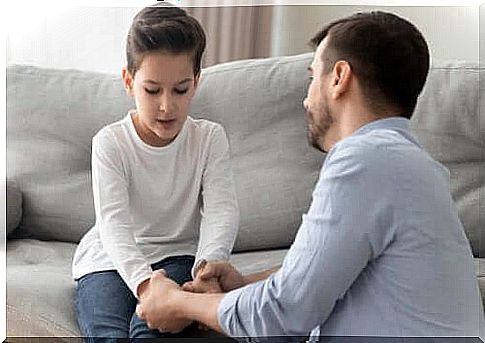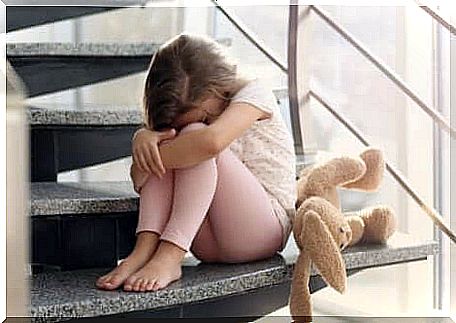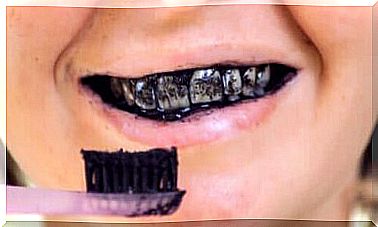How To Explain Death To Children?
Death is a complex reality, difficult to accept, which can seem even more complex when we try to explain it to children. Here are some recommendations.

One of the most painful episodes in life is the loss of a loved one. Not all adults know how to deal with it. Have you ever wondered how to explain death to children?
Children can feel deep anxiety as well as pain after the death of a loved one.
It is sometimes easier to explain this process when it touches an animal, or a known but distant person – who is not in the family circle. However, if it is a close relative, things change dramatically.
Understanding death according to the child’s age
The studies on the subject indicate that the understanding of death varies with the age of the child. For example, before the age of two, little ones may experience a sense of presence and absence.
However, at this age, the child has not yet formed his operational thinking ability. In other words, the development of a logical thought. Nor the possibility of integrating a concept such as that of death.
This is due, according to Piaget’s theory, to the fact that in children of this age predominates a sensorimotor development which is based more on reflexes. It is therefore normal that they are apathetic in the face of this type of pain.
Other research on bereavement in children points out that, up to age 7, toddlers still think death is temporary and reversible. On the other hand, they may exhibit a kind of “magical thinking”, and even believe that it was their own imagination that caused this event.
Of course, this is a subject that is uncomfortable for families as they do not always have the resources to explain or answer the many questions children have.
Adults are also looking for a way to communicate what happened, trying to avoid pain in children. Or at least mitigate it. It is precisely at this moment that they realize that they do not know what to say.

Children’s questions
If the child is less than five years old at the time of death, it will be difficult for the child to understand the following three basic factors:
- Death is an irreversible and definitive fact.
- The vital functions of the deceased person are totally and definitively absent.
- Death is universal. She comes one day for everyone.
Therefore, children can ask: “why can’t I see Grandpa anymore ?,“ does death hurt? ”,“ Is it forever? ”,“ Where is he? ”,“ is he cold? ”,“ can he hear us? ” etc. These are also questions that we ask ourselves as adults, but that children adapt to their reality. What then to answer?
How to explain death to children?
Adolescents – including pre-teens – can already understand the concept of death, almost as well as adults. However, they can also be afraid of being abandoned, of losing another parent, a loved one, and sometimes hide their feelings.

Here are some ways for adults to respond to children and explain:
- Transmit calm. If you don’t feel able to answer a question, you can tell the child that you will answer later because it is a very important question and you want a deeper answer.
- Responses should be consistent.
- Allow the child to express their fears in a safe, quiet and uninterrupted place.
- Avoid sentences such as: “ he is sleeping “, or “ he has gone on a trip ”, as they can develop a fear of sleep or travel.
- Give clear answers. “Being dead means that we won’t be able to see these people anymore”, but we can convey a calm by adding that “the memories will always be present”.
- Some parents give religious explanations, but children do not always understand them, and need more specific answers about the person’s physical absence.
- At school age, children probably need help describing their feelings. We must help them and take the time necessary to listen and clarify.
- Explain to the child that it was not he who caused the death of the loved one. This will avoid the feeling of guilt.
- Explain to her that not all people who get sick die. And reassure him by telling him that he is in good health.
- Finally, the most important thing for the child is that you apply these guidelines with love and affection because this is what he needs the most.
How to explain death to children? Conclusion
Death is a very complex reality. It is therefore not so easy to explain it. If you think you need support, do not hesitate to consult a psychologist for some advice.









